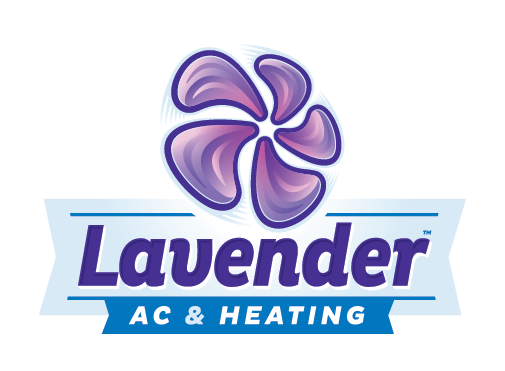Maintaining a comfortable and healthy indoor environment extends beyond just setting the right temperature; it incorporates the purity of the air we breathe inside our homes and workplaces. The significance of air filters in our air conditioning systems, such as those provided by Lavender AC & Heating, cannot be overstated—they are fundamental in trapping dust, pollen, and other airborne particles, enhancing indoor air quality. Regularly replacing these filters is pivotal to ensuring that our living and working environments remain comfortable and health-friendly.
As one dives deeper into the role of air filters, it becomes evident that they serve as the frontline defense against airborne contaminants. However, the benefits of maintaining a clean and effective air filter stretch further than just cleansing the air. They also play a critical role in maintaining the efficiency of the AC system, which in turn can prolong its operational lifespan and enhance overall performance. Over time, filters can become clogged with debris, leading to reduced airflow and forcing the AC system to work harder—increasing energy use and raising utility bills. By understanding the types of air filters available and recognizing when they need to be changed, homeowners can take proactive steps to ensure their air conditioning systems run efficiently and effectively, preserving both air quality and system health, a commitment Lavender AC & Heating stands by.
Understanding the Importance of Air Filter Replacement for Indoor Air Quality
Maintaining the air quality inside your home is crucial, and the role of air filters in your AC system cannot be overstated. Clean air is not just a comfort issue; it’s a health priority, particularly for those with allergies, asthma, or respiratory issues. Air filters trap dust, pollen, pet dander, and other air pollutants, preventing them from circulating through your home. When these filters become clogged, the effectiveness of the air filtering plummets, leading to poorer indoor air quality. This decline can impact the overall health environment of your living space, making it urgent to keep these filters in optimal condition.
By ensuring regular replacement of air filters, we help maintain the cleanliness of the air we breathe. This protects your health and enhances your AC system’s efficiency by maintaining optimal airflow. Improved airflow leads to less strain on the system, therefore decreasing the likelihood of repairs and extending the system’s operational life.
Types of Air Filters and Their Specific Benefits
When it comes to selecting air filters, understanding the various types available and their specific benefits can guide you in making an informed decision that best fits your needs. Here are a few common types of air filters used in residential AC systems:
- Fiberglass Filters: These are economical and designed to protect your HVAC system from larger particles like lint and dust. However, they offer minimal filtration for smaller particles.
- Pleated Filters: Made from higher-quality materials than fiberglass, pleated filters can trap finer particles such as mold spores and pet dander. They provide a greater surface area for filtration, enhancing their efficiency.
- HEPA Filters: Standing for High-Efficiency Particulate Air, HEPA filters offer the highest level of air filtration. This type is ideal for individuals with severe allergies or respiratory conditions.
- Electrostatic Filters: These use self-charging fibers to attract particles, making them effective at capturing small particles like smoke and bacteria. They are reusable, reducing waste and potentially saving money over time.
Each type of filter offers specific benefits, ranging from cost-effectiveness to high-level filtration capability. We can assist in assessing the needs of your home environment to recommend and install the ideal filter type, ensuring you enjoy both optimal air quality and system efficiency.
By prioritizing a tailored approach to air filter selection and replacement, we not only enhance your home’s air quality but also contribute to the health and well-being of all inhabitants.
Step-by-Step Guide to Replacing Your Air Filter
Replacing the air filter in your AC system is a straightforward procedure that significantly boosts the unit’s performance and efficiency. Here’s a detailed guide on how to replace your air filter to ensure optimal air quality and system functionality:
- Turn Off the AC System: Safety first. Ensure the system is off to prevent any airflow while you are changing the filter.
- Locate the Air Filter: Find the air filter compartment, which is typically located along the return duct or in a slot on the furnace or air handler.
- Remove the Old Filter: Slide out the old filter. Note the direction of the airflow indicators on the rim to ensure the new filter is installed facing the correct direction.
- Insert the New Filter: Slide the new filter into place, following the airflow direction indicated on the filter’s frame. Make sure it fits snugly without any gaps.
- Dispose of the Old Filter Properly: Place the old filter in a bag and dispose of it in accordance with your local waste management regulations.
- Turn on the System: Reactivate your AC system. It’s a good practice to check the system briefly to ensure everything is running smoothly.
Regular air filter changes not only assist in maintaining the air quality but also prevent the system from overworking, which can lead to higher energy costs and potential repairs.
Recognizing the Signs It’s Time to Change Your Air Filter
Knowing when to change your air filter is crucial for maintaining indoor air quality and the efficiency of your AC system. Here are some indicators that it might be time for a filter replacement:
- Increased Dust Levels: If you notice more dust accumulating around your vents or within your home, it could be a sign that the filter is no longer trapping particles effectively.
- Visible Dirt on Filter: Check the filter monthly. If it looks dirty or clogged, it’s time for a change.
- Allergy Symptoms: An uptick in allergy symptoms or respiratory issues among household members can often be attributed to poor air quality caused by a dirty filter.
- Higher Than Usual Energy Bills: A clogged filter makes your AC system work harder, consuming more energy and resulting in higher utility bills.
- Reduced Airflow: If your AC seems to be working harder to cool your home or airflow from the vents is weak, the filter may be blocked.
Keeping an eye on these signs will help you maintain an efficient, healthy air system in your home.
In Conclusion
We recognize that the seemingly small task of replacing an air filter can significantly impact the comfort, air quality, and operational efficiency of your home’s cooling and heating systems. Regular maintenance, including timely filter replacements, is integral to prolonging the life of your unit, reducing energy costs, and maintaining a healthy environment within your home.
Let our Lavender AC & Heating team assist you in maintaining an optimally functioning AC system. For professional advice, servicing, and more information on maintaining your air conditioning system, Contact us today to learn more about our air filter replacement in Rowlett, TX.





